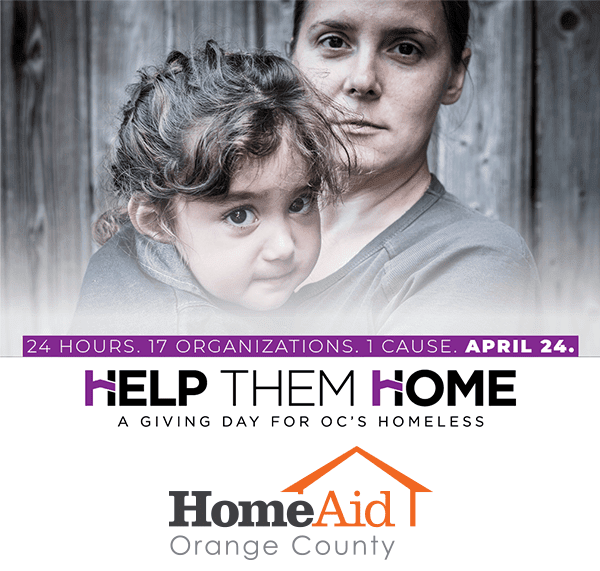Welcome to the Education Corner, A Daily Outsider Property Working to Help transform our Conversation About Our World: http://ordinaryfaces.business.site
Creative Commons License
Monday, April 29, 2019
Saturday, April 27, 2019
Friday, April 26, 2019
Notations From the Grid (Special Friday Edition): On the Reality of #ClimateChange
Please enjoy the following on Climate Change courtesy of the Weather Channel and The Climate Reality Project:
Iowa's solar entrepreneurs are in a political fight for their future as lawmakers consider new fees that could bring the state's young rooftop solar industry to a screeching halt. Small businesses and jobs hang in the balance.
(InsideClimate News)
Alberta's Old, Unproductive Oil and Gas Wells Could Cost up to $70 Billion to Clean Up, Report Finds
Cleaning up all of the old and unproductive oil and gas wells in Alberta, Canada, will cost between $40 billion and $70 billion, according to a new report based on data from the Alberta Energy Regulator. About 3,000 wells in the province are slated for remediatation, but more than 100,000 unproductive wells will need to be cleaned up.
(CBC)
The cost of reaching global climate goals is falling as wind and solar energy prices plummet and policy makers push electrification as the main tool to cut pollution, according to a new report from the International Renewable Energy Agency. IRENA lowered its cost estimate for the investments needed by 2050.
(Bloomberg)
Former Defense Secretary Chuck Hagel, a Republican who previously represented Nebraska in Congress, told a House committee Tuesday that the country must confront the dangers posed by climate change. "Climate change is a real and present threat to our national security, which most likely will get worse," he said. "There needs to be a dedicated effort to address this threat."
(Omaha World-Herald)
The U.S. Department of Energy is recommending the installation of a large natural gas plant in Puerto Rico — a move it admits could run counter to emerging clean energy policies in the U.S. territory, where the governor is expected to sign legislation setting a target of 100% clean energy by 2050.
(Utility Dive)
To meet the international goal of keeping global warming well below 2°C compared to pre-industrial times, today's young people will have to live their lives with significantly smaller carbon footprints than their grandparents, a new analysis of "allowable" lifetime CO2 emissions shows.
(The Guardian)
Big real estate investment companies are pouring resources into calculating climate risk and its likely effect on property portfolios — everything from increasingly extreme weather to sea-level rise — to better gauge and develop mitigation strategies, according to a new report from the Urban Land Institute.
(CNBC)
Local communities are taking the world's largest polluters to court, and they're using the legal strategy that got tobacco companies to pay up. Luciano Lliuya, who had never left Peru, is suing on RWE, Germany's largest energy utility, for its role in climate damage that has put his house at risk.
(The New York Times)
|
|
Wednesday, April 24, 2019
Notations From the Grid (Weekly Edition): On Medicare
Please see the following on guidance regarding Medicare:
Did you know that Medicare has an ombudsman to help you resolve complaints that you may have about your healthcare?
Congress created the job of Medicare Beneficiary Ombudsman to assist people with Medicare with their inquiries, complaints, grievances, appeals, and requests for information.
The Medicare Beneficiary Ombudsman also shares information with Congress, the Secretary of Health and Human Services, and other organizations about what works well and what doesn’t work well to improve the quality of the care you get through Medicare.
If you need help with a Medicare-related inquiry, there are several ways you can get help.
- Call your plan.If your inquiry is related to your Medicare Advantage (Part C) plan or Medicare Prescription Drug (Part D) plan, contact your plan first using the phone number on your plan member ID card. Your plan is the best resource to resolve plan-related issues.
- Call 1-800-MEDICARE (1-800-633-4227). TTY users should call 1-877-486-2048. If your concern is related to Original Medicare, or if your plan was unable to resolve your inquiry, contact 1-800-MEDICARE for help.
- Contact the SHIP.The State Health Insurance Assistance Programs (SHIPs) provide free, high-quality counseling to people with Medicare regarding their benefits, coverage, appeals, and complaints. SHIP counselors are volunteers who often have Medicare themselves, so they know the issues and they’re not trying to sell you anything. Find your local SHIP at: https://www.shiptacenter.
org/ - Contact the Medicare Beneficiary Ombudsman. If you have been unable to resolve your concern with your plan or 1-800-MEDICARE, ask a 1-800-MEDICARE representative to submit your complaint or inquiry to the Medicare Beneficiary Ombudsman. The Ombudsman will help to ensure that your inquiry is resolved appropriately.
No matter how you get your Medicare, you have certain rights and protections. As a person with Medicare, you’re entitled to:
- Be treated with dignity and respect at all times.
- Be protected from discrimination. Every company or agency that works with Medicare must obey the law. They can’t treat you differently because of your race, color, national origin, disability, age, religion, or sex.
- Have your personal and health information kept private.
- Get information in a way you understand from Medicare, health care providers, and, under certain circumstances, contractors.
- Get understandable information about Medicare to help you make health care decisions, including:
- Have your questions about Medicare answered.
- Have access to doctors, specialists, and hospitals.
- Learn about your treatment choices in clear language that you can understand, and participate in treatment decisions.
- Get healthcare services in a language you understand and in a culturally-sensitive way.
- Get Medicare-covered services in an emergency.
- Get a decision about healthcare payment, coverage of services, or prescription drug coverage.
- When a claim is filed, you get a notice letting you know what will and won’t be covered. The notice comes from one of these:
- Medicare;
- Your Medicare Advantage plan (Part C);
- Your Medicare prescription drug plan (Part D);
- Your other Medicare health plan.
- If you disagree with the decision on your claim, you have the right to file an appeal.
- Request a review (appeal) of certain decisions about healthcare payment, coverage of services, or prescription drug coverage.
- If you disagree with a decision about your claims or services, you have the right to appeal.
- File complaints (sometimes called “grievances”), including complaints about the quality of your care.
You can find more information at: https://www.medicare.gov/
Greg Dill is Medicare’s regional administrator for Arizona, California, Nevada, Hawaii, and the Pacific Territories. You can get answers to your Medicare questions by visiting www.Medicare.gov or calling 1-800-MEDICARE (1-800-633-4227).
Friday, April 19, 2019
On this Good Friday...
We begin by simply saying thank you as we are privileged to serve. We also chose this uplifting and engaging message from MOAS that we've periodically featured in our properties--as we go dark through Easter Sunday, we wish all a fabulous Easter Week-End:
|
|
|
Thursday, April 18, 2019
Wednesday, April 17, 2019
Tuesday, April 16, 2019
Notations From the Grid (Weekly Edition): A Life Lesson in Civics....
We hereby present this on Democracy courtesy of the team at Education Next:
|
Monday, April 15, 2019
Saturday, April 13, 2019
Notations On Our World (Special Local Edition): "Help Them Home"
We have had the honor to be supportive of the wonderful work by HomeAid Orange County for a number of years. We hope all will consider being supportive in whatever way they can:
|
|
Thursday, April 11, 2019
Monday, April 8, 2019
Notations From the Grid (Weekly Edition): Admonitions From Gandhi Ji (Courtesy @ValaAfshar)

Seven dangers to human virtue:— Vala Afshar (@ValaAfshar) February 25, 2018
1. Wealth without work
2. Pleasure without conscience
3. Knowledge without character
4. Business without ethics
5. Science without humanity
6. Religion without sacrifice
7. Politics without principle —Gandhi pic.twitter.com/z51YFHmJg2
Saturday, April 6, 2019
Wednesday, April 3, 2019
Tuesday, April 2, 2019
Monday, April 1, 2019
Notations From the Grid (Weekly Edition): On #California Watch
As we welcome all to a new Quarter throughout our properties, we hereby present the following courtesy CalMatters on the Week that was in our home state of California:
|
|
Subscribe to:
Comments (Atom)
















